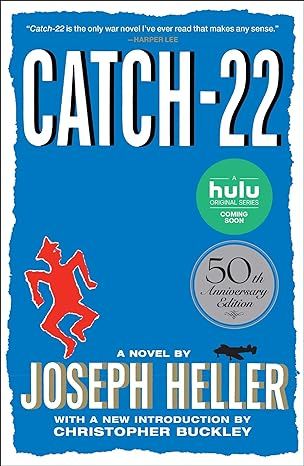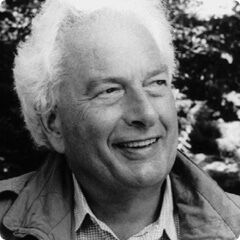Catch-22: 50th Anniversary Edition
4.4
-
13,919 ratings
This fiftieth-anniversary edition commemorates Joseph Heller’s masterpiece with a new introduction; critical essays and reviews by Norman Mailer, Alfred Kazin, Anthony Burgess, and others; rare papers and photos; and much more.
Nominated as one of America’s best-loved novels by PBS’s The Great American Read.
Now a Hulu limited series starring Christopher Abbott, George Clooney, Kyle Chandler, and Hugh Laurie.
Fifty years after its original publication, Catch-22 remains a cornerstone of American literature and one of the funniest—and most celebrated—books of all time. In recent years it has been named to “best novels” lists by Time, Newsweek, the Modern Library, and the London Observer.
Set in Italy during World War II, this is the story of the incomparable, malingering bombardier, Yossarian, a hero who is furious because thousands of people he has never met are trying to kill him. But his real problem is not the enemy—it is his own army, which keeps increasing the number of missions the men must fly to complete their service. Yet if Yossarian makes any attempt to excuse himself from the perilous missions he’s assigned, he’ll be in violation of Catch-22, a hilariously sinister bureaucratic rule: a man is considered insane if he willingly continues to fly dangerous combat missions, but if he makes a formal request to be removed from duty, he is proven sane and therefore ineligible to be relieved.
This fiftieth-anniversary edition commemorates Joseph Heller’s masterpiece with a new introduction by Christopher Buckley; a wealth of critical essays and reviews by Norman Mailer, Alfred Kazin, Anthony Burgess, and others; rare papers and photos from Joseph Heller’s personal archive; and much more. Here, at last, is the definitive edition of a classic of world literature.
Kindle
$12.99
Available instantly
Audiobook
$0.00
with membership trial
Hardcover
$17.23
Paperback
$10.88
Ships from
Amazon.com
Payment
Secure transaction
ISBN-10
1451626657
ISBN-13
978-1451626650
Print length
544 pages
Language
English
Publisher
Simon & Schuster
Publication date
April 04, 2011
Dimensions
5.5 x 1.2 x 8.44 inches
Item weight
15 ounces
Popular Highlights in this book
Catch-22. Anyone who wants to get out of combat duty isn’t really crazy.
Highlighted by 4,251 Kindle readers
He had decided to live forever or die in the attempt, and his only mission each time he went up was to come down alive.
Highlighted by 3,715 Kindle readers
The Texan turned out to be good-natured, generous and likable. In three days no one could stand him.
Highlighted by 3,222 Kindle readers
Product details
ASIN :
B0048WQDIE
File size :
6115 KB
Text-to-speech :
Enabled
Screen reader :
Supported
Enhanced typesetting :
Enabled
X-Ray :
Enabled
Word wise :
Enabled
Editorial Reviews
"Catch-22 is the only war novel I've ever read that makes any sense." —Harper Lee
“One of the most bitterly funny works in the language . . . Explosive, bitter, subversive, brilliant.” —The New Republic
“To my mind, there have been two great American novels in the past fifty years. Catch-22 is one.” —Stephen King, Entertainment Weekly
“This novel is not merely the best American novel to come out of World War II, it is the best American novel that has come out of anywhere in years.” —Nelson Algren, The Nation
“It’s the rock and roll of novels . . . There’s no book like it. . . . Surprisingly powerful.” —Norman Mailer, Esquire
“One of the greatest anti-war books ever written.” —Vanity Fair
Sample
INTRODUCTION
There was only one catch and that was Catch-22, which specified that a concern for one’s own safety in the face of dangers that were real and immediate was the process of a rational mind. Orr was crazy and he could be grounded. All he had to do was ask; and as soon as he did, he would no longer be crazy and would have to fly more missions. Orr would be crazy to fly more missions and sane if he didn’t, but if he was sane he had to fly them. If he flew them he was crazy and didn’t have to; but if he didn’t want to he was sane and had to. Yossarian was moved very deeply by the absolute simplicity of this clause of Catch-22 and let out a respectful whistle.
“That’s some catch, that Catch-22,” he observed.
“It’s the best there is,” Doc Daneeka agreed.
The phrase “Catch-22” has so permeated American language—or embedded itself, to put it in Desert Storm terminology—that we deploy it almost every day, usually to describe an encounter with the Department of Motor Vehicles. Its usage is so common that it’s right there in the dictionary. Not many book titles end up being (sorry; unavoidable) catchphrases. My own American Heritage Dictionary defines it as: “1.a A situation in which a desired outcome or solution is impossible to attain because of a set of inherently illogical rules or conditions. In the Catch-22 of a close repertoire, only music that is already familiar is thought to deserve familiarity. (Joseph McLennan).”
Joseph . . . who? But it’s possible, even likely in fact, that the other Joseph would be amused at not being mentioned until the very bottom of the entry. I can hear him chuckling and asking, “And how many copies of the American Heritage Dictionary have they sold so far?” I don’t know, but my guess is, not as many as Catch-22, which, in the fifty years since it first appeared in October 1961, has sold over ten million.
In his memoir Now and Then, published the year he died, Heller tells us that he wrote the first chapter of his masterpiece in longhand on a yellow legal pad in 1953. It was published two years later in the quarterly New American Writing #7, under the title “Catch-18.” Also in that number were stories by A. A. Alvarez, Dylan Thomas, Heinrich Böll, and one by someone calling himself “Jean-Louis”—Jack Kerouac, a piece from a book he was writing called On The Road. Catch-22 and On The Road? Not a bad issue of New American Writing, that.
The full story of how Catch-22 came about is told in Tracy Daugherty’s fascinating new biography, Just One Catch. Briefly: the novel grew out of Heller’s experiences as a bombardier in World War II, flying missions out of Corsica over Italy. It was seven years in the writing, while its author worked in the promotional departments of McCall’s and Time magazines. Just before being published, the novel had to be retitled, when it was learned that Leon Uris was about to bring out a World War II novel called Mila 18. Which is why you didn’t have a Catch-18 experience today at the Department of Motor Vehicles.
Read more
About the authors
Joseph Heller
Joseph Heller was born in 1923 in Brooklyn, New York. He served as a bombardier in the Second World War and then attended New York University and Columbia University and then Oxford, the last on a Fullbright scholarship. He then taught for two years at Pennsylvania State University, before returning to New York, where he began a successful career in the advertising departments of Time, Look and McCall's magazines. It was during this time that he had the idea for Catch-22. Working on the novel in spare moments and evenings at home, it took him eight years to complete and was first published in 1961. His second novel, Something Happened was published in 1974, Good As Gold in 1979 and Closing Time in 1994. He is also the author of the play We Bombed in New Haven.
Read more
Reviews
Customer reviews
4.4 out of 5
13,919 global ratings
Rick O
5
This uproarious satirical novel by Joseph Heller prompted me...
Reviewed in the United States on February 17, 2013
Verified Purchase
This uproarious satirical novel by Joseph Heller prompted me to think of Robert Crichton's 'The Secret Of Santa Vittoria', another novel blending WWII and comedy. Published in 1961, 'Catch-22' was the forerunner of Richard Hooker's 1968 novel, 'Mash: A Novel About Three Army Doctors'. It's not about Army Doctor's in Korea, but about Army Air Force pilots and bombardiers during WWII stationed on the small island of Pianosa, west of Italy. In order to understand the insanity of this story, the reader has to comprehend what Catch-22 means. In chapter five, Doc Daneeka explains to Yossarian ( main character ) and Orr, his roommate, why he can't ground them due to insanity: "There was only one catch and that was Catch-22, which specified that a concern for one's own safety in the face of dangers that were real and immediate was the process of a rational mind. Orr was crazy and could be grounded. All he had to do was ask; and as soon as he did, he would no longer be crazy and would have to fly more missions. Orr would be crazy to fly more missions and sane if he didn't, but if he was sane he had to fly them. If he flew them he was crazy and didn't have to; but if he didn't want to he was sane and had to. Yossarian was moved very deeply by the absolute simplicity of this clause of Catch-22 and let out a respectful whistle."That's some catch, that catch-22," he observed."It's the best there is," Doc Daneeka agreed." This catch was why none of the bombing personnel were able to avoid flying mission after mission.
The main character is Captain Yossarian, a bombardier who is convinced he is going to die on a mission. In chapter two, he explains to fellow officer, Clevinger why: "They're trying to kill me," Yossarian told him calmly. "No one's trying to kill you," Clevinger cried. "Then why are they shooting at me?" Yossarian asked. "They're shooting at everyone," Clevinger answered. "They're trying to kill everyone." "And what difference does that make?" Yossarian's fear of dying on a bombing raid was enhanced by his group commander, Colonel Cathcart. His lack of compassion was buoyed by his desire to be a general and more importantly, to be featured in 'The Saturday Evening Post'! If the Air Force wanted 40 missions before you could go home, the Colonel wanted 45. Every time someone came close to obtaining the target number of missions for being sent home, Colonel Cathcart raised the required number again. The Colonel is only one of the complex characters in this novel.
I have many favorite characters and situations in this sometimes disturbing, but whimsical story. The first is Lt. Milo Minderbinder, the mess hall officer. From day one, he wheels and deals like no other war time entrepreneur. He gets away with his shenanigans by telling everyone that they have a share in his enterprises. In chapter 22, he explains his egg business: ..." I make a profit of three and a quarter cents an egg by selling them for four and a quarter cents an egg to the people in Malta I buy them from for seven cents an egg. Of course, I don't make the profit. The syndicate makes the profit. And everybody has a share." He gets into so many businesses that he even deals with the Germans! In chapter 24, he takes a contract from the Germans to bomb his own base: "This time Milo had gone too far. Bombing his own men and planes was more than even the most phlegmatic observer could stomach, and it looked like the end for him...Milo was all washed up until he opened his books to the public and disclosed the tremendous profit he had made." Then he says in the same chapter: "I'd like to see the government get out of war altogether and leave the whole field to private industry. "As the Milo character gets deeper into the book, it only gets more humorous.
My second favorite is Major Major Major Major, the squadron commander, who looked like Henry Fonda! People who met him were always impressed by how unimpressive he was! In chapter nine, we learn: "With a little ingenuity and vision, he had made it all but impossible for anyone in the squadron to talk to him, which was just fine with everyone, he noticed, since no one wanted to talk to him anyway." In chapter ten, we find that: "Major Major never sees anyone in his office while he's in his office." But you can see him, if he is not in his office. If you try to barge into his tent, he goes out the window. I know it's confusing, but his first, middle and last name was Major, thus the four 'majors' when he got promoted to, you guessed it, Major.This book is a riot.
My third favorite is Major-------de Coverley, Major Major Major Major's executive officer. Throughout the novel he has a blank for his first name. His function is uncertain at best. He basically pitches horseshoes all day, kidnaps Italian workers, and rents apartments for his men to use on rest leave. As soon as he hears of a city that the U.S.Army has captured, he's on his way there, usually at the head of the procession in a Jeep. No one ( friend, or foe ) knows who he is! But the reader knows that he is there just to rent apartments for his men. His picture appears in many publications, as if he is is leading the conquering army. I'm telling you this book is a gas.
There are two subplots that are absolutely hysterical. The first involves the Chaplain's hostile assistant, Cpl. Whitcomb. The corporal comes up with the following generic condolence letter: "Dear Mrs., Mr., Miss, or Mr. And Mrs. Daneeka: Words cannot express the deep personal grief I experienced when your husband, son, father, or brother was killed, wounded, or reported missing in action."This one was sent to Doc Daneeka's wife, even though the Doc wasn't dead. Col. Cathcart feels this letter will prove his concern for his men and finally get him in The Saturday Evening Post. He promotes Whitcomb to sergeant! The second subplot revolves around our hero, Yossarian. After Yossarian tells Lt. Nately's whore that Nately was killed in action, She tries to kill Yossarian and she relentlessly pursues him chapter, after chapter. Nobody knows why she wants to slay him, but it is funny.
The reader will also meet: Chaplain Tappman, who is intimidated by everyone; Nurses Cramer and Duckett; Hungry Joe and his screaming nightmares; Chief White Halfoat, who knows he is going to die of pneumonia; Aarfy, the navigator; and Huple, the fifteen year old pilot, just to mention a few. How Joseph Heller kept track of all these characters is unbelievable.There is so much going on in this book that I had to take notes to remember who is who, and who did what.This is a great American classic and should be read by book lovers of all genres. The great American author Studs Terkel states in the `other voices' section of this book: "You will meet in this astonishing novel, certainly one of the most original in years, madmen of every rank: Major Major Major, on whose unwilling frame the gold leaf is pinned because of his unfortunate resemblance to Henry Fonda; Doc Daneeka, who is declared dead despite his high temperature; Hungry Joe and his fistfights with Huple's cat; ex-pfc Wintergreen, who has more power than almost anybody." Enough said?
Read more
8 people found this helpful
August
5
Pleasantly surprised.
Reviewed in the United States on May 1, 2024
Verified Purchase
I hated this book at first (the first 50 pages felt like absolute nonsense). But as I continued, I realized how the silliness tied in so well with the darker aspects of the plot. It's wild how well the humor complemented some really morbid moments. I have to say, I get it now. This is a pretty fantastic book, and it's incredibly well written.
3 people found this helpful
Amazon Customer
5
This book is amazing.
Reviewed in the United States on March 31, 2024
Verified Purchase
I knew that I would be interested in the subject of Catch-22, but I was completely unprepared for how much fun it was to read. It has immediately earned a place on my literary Mt. Rushmore. The novel jumps casually backward and forward in time (think Tarantino-esque, for you movie fans out there) which provides a jumbled sense of insanity that becomes one of the key themes of the story.
This book is a fantastic satire, not only of the military bureaucracy within which it takes place, but of the entire hierarchical system of post-war Western society. It is both bleak and hilarious. I can’t recommend it highly enough.
Read more
4 people found this helpful
AP Lit review group
5
Catch-22 CW review
Reviewed in the United States on December 4, 2012
Verified Purchase
The novel "Catch-22" was written by Joseph Heller to show how crazy the Air Force made people during World War Two. The characters are trapped in the Air Force by the catch known as Catch 22, it was meant to stop crazy people from compromising missions by preventing them from flying. What the catch really did was prevent anybody from being grounded (sent home). The catch works where if someone was crazy all they had to do was ask somebody to ground them, the only problem was that when they asked to be grounded the catch said that the person was no longer crazy and could not be grounded. This along with the number of required missions constantly being raised prevents anybody from leaving the Air Force. Being forced to stay takes its toll on the soldiers as they slowly lose morale and drift into madness. The main character, Yossarian, realizes that there is no escape other than death, which he, more than anyone, wants to avoid. This prompts him to plot how to avoid going on missions. Heller writes this story not in any particular chronological order, and instead connects the chapters at random in order to portray the insanity that the characters experience. The story is analogous to a jig-saw that is given ten pieces at a time. The reader must remember was has already been said and connect it to what has just been said. Heller's writing style of using a plethora of ironies and hyperboles adds to the satire of the book, which isn't so much satirizing WW2, but war in general. His way of writing the character's dialogue also contributed to the insanity that he was trying to portray. The characters speak in what feels like circles, where the character says what the last character said in a slightly different way. After a while of this, the conversation loses its original meaning and makes even the reader question his sanity. The novel effectively satirizes World War Two and possibly all other wars, and conveys themes of power in bureaucracy, the inevitability of death, and a loss of religion.
Read more
3 people found this helpful
BOB
4
The Existential Catch
Reviewed in the United States on June 12, 2019
Verified Purchase
The breadth of the absurdity becomes apparent once you realize that the ‘catch’ of the title is the foundational principle upon which the existence of all participants in a war is based. Almost every choice is between two mutually exclusive, opposing alternatives. Joseph Heller’s 1961 novel was perfectly positioned in time. Written by a World War II veteran about WW II, yet informed by the mounting insanity of the Korean and Cold War 50’s, it was released at the beginning of the 1960’s and became a clarion call for all those who protested the insanity of yet another war in Vietnam. Its sentiments reverberated throughout the decade and acquired a universal relevance to life beyond its literary source.
The syndrome of ‘Catch-22’ existed before Heller’s novel, though maybe not to such an exaggerated extent. Heller gave it a name and a narrative to illustrate how it manifested and spread like a virus. The bombardier Yossarian tries to be sick to get out of flying more missions. Having “almost jaundice” is not sick enough. He tries to be crazy to get the doctor to restrict him from flying missions. He can’t get crazy enough. In fact, his expression of insanity brings him to collide with a definitive articulation of ‘Catch-22’: “Orr would be crazy to fly more missions and sane if he didn’t, but if he was sane he had to fly them. If he flew them he was crazy and didn’t have to: but if he didn’t want to he was sane and had to.” Yossarian sees the perfection in such a clause: “Yossarian saw it clearly in all its spinning reasonableness. There was an elliptical precision about its perfect pairs of parts that was graceful and shocking, like good modern art, and at times Yossarian wasn’t quite sure that he saw it all, just the way he was never quite sure about good modern art.”
There are dozens of examples of how various characters embody ‘Catch-22’. Yossarian’s commanding officer Colonel Cathcart is driven by a vain desire to be the subject of a feature in the Saturday Evening Post, just like one of his rivals. He feels that if his regiment flies more missions than any other that’s a significant accomplishment worthy of a feature article. Therefore, once any of his soldiers are within sight of reaching the previous goal of 40 missions, say, he will raise the number of missions to 45. He keeps raising the number throughout the rest of the novel so that the end total is somewhere in the 80’s. Yossarian may not know the reason Cathcart keeps raising the number as we the readers do but he feels the immediate effect of such capriciousness.
The major named Major Major Major Major (his father’s bizarre sense of humor inspired him to give his son a first and middle name to match his surname) is mystified by his promotion as he has done absolutely nothing to merit it. He didn’t ask for more responsibility and he refuses to accept it. Therefore, he devises a modus operandi that is permeated with ‘Catch-22’: “From now on,” he said, “I don’t want anyone to come in to see me while I’m here. Is that clear?” “Yes, sir,” said Sergeant Towser. “Does that include me?” “Yes.” “I see. Will that be all?” “Yes.” “What shall I say to the people who do come to see you while you’re here” “Tell them I’m in and ask them to wait.” “Yes sir. For how long?” “Until I’ve left.” “And then what shall I do with them?” “I don’t care.” “May I send them in to see you after you’ve left?” “Yes.” “But you won’t be here then, will you?” “No.”
One person who has used the climate of Catch-22 and seized the opportunity to use it to his advantage is Yossarian’s friend Milo Minderbinder. Milo is ostensibly the mess hall manager. However, he has used his mess hall title as a jumping off point to build a commercial empire. He has become the super profiteer, taking free enterprise to the soldiers, buying at a discount, selling at a profit, buying as part of a complex trade rendering an even greater profit, all in the name of the “syndicate”. Everyone wins because everyone owns a share. The fact that the syndicate’s shareholders include enemies as well as allies does not stop Milo from doing business with them in the least.
Yossarian and his friends usually go to Rome when they get any leave and visit the same brothel. Yossarian has become especially friendly with one whore, Luciana, and Nately has fallen in love with another and wants to marry her. Their pimp is a 107-year old Italian who sits in the middle of the floor and pontificates. When he says that America will lose the war, Nately takes issue and says America is the strongest nation on earth. The old man concedes that Italy is a weak country but contends that it will prevail: “The Germans are being driven out, and we are still here. In a few years you will be gone, too, and we will still be here. You see, Italy is really a very poor and weak country, and that’s what makes us so strong. Italian soldiers are not dying any more. But American and German soldiers are. I call that doing extremely well. Yes, I am quite certain that Italy will survive this war and still be in existence long after your own country has been destroyed…All great countries are destroyed. Why not yours? How much longer do you really think your own country will last?”
Nately says he talks like a madman: “But I live like a sane one. I was a fascist when Mussolini was on top, and I am an anti-fascist now that he has been deposed. I was fanatically pro-German when the Germans were here to protect us against the Americans, and now that the Americans are here to protect us against the Germans I am fanatically pro-American. I can assure you, my outraged young friend”—the old man’s knowing, disdainful eyes shone even more effervescently as Nately’s stuttering dismay increased—“that you and your country will have no more loyal partisan in Italy than me—but only as long as you remain in Italy.”
Yossarian’s roommate, the aforementioned Orr, has a scheme that is only apparent near the novel’s end. Orr flies plenty of missions. However, most of them end with his plane going down in the ocean. Yossarian views Orr as a bad-luck charm and refuses to fly any more missions with him. The pattern goes, Orr flies, Orr’s plane goes down, Orr is rescued, Orr flies again. And repeat. Near the end of the novel, Orr has disappeared. His remains were never found. No trace of him was found. Later, it is discovered that he has made his way all the way to neutral Sweden, sanity and safety. His scheme was the cleverest of any of them and he inspires Yossarian, who is finally given terms under which he can go home. However, to do so he is presented with another untenable catch. He will be a decorated war hero and he must say only nice things about his commanders. Orr’s success, however, provides him with another option WITHOUT a Catch-22.
‘Catch-22’ is, without doubt, an important and influential novel. Heller articulates certain realities of war and being the pawn of military gamesmanship that many had felt before. I’m not sure that the scrambled time sequence really contributes to the impact of the brutal satire, although it does provide a narrative equivalent to the circular reasoning that forms the basis for most of the decision-making in the novel. There are also so many characters in the novel and few of them are clearly delineated so that when they speak with Catch-22 reasoning, they’re mouthpieces for Heller more so than characters with unique identities. Despite these shortcomings, ‘Catch-22’ caught the zeitgeist of its time and reflected it back to a receptive audience ready to not conform and not accept choices within which were somewhere buried a Catch-22.
Read more
19 people found this helpful
Best Sellers

The Great Alone: A Novel
4.6
-
152,447
$5.49

The Four Winds
4.6
-
156,242
$9.99

Winter Garden
4.6
-
72,838
$7.37

The Nightingale: A Novel
4.7
-
309,637
$8.61

Steve Jobs
4.7
-
24,596
$1.78

Iron Flame (The Empyrean, 2)
4.6
-
164,732
$14.99

A Court of Thorns and Roses Paperback Box Set (5 books) (A Court of Thorns and Roses, 9)
4.8
-
26,559
$37.99

Pretty Girls: A Novel
4.3
-
88,539
$3.67

The Bad Weather Friend
4.1
-
34,750
$12.78

Pucking Around: A Why Choose Hockey Romance (Jacksonville Rays Hockey)
4.3
-
41,599
$14.84

Start with Why: How Great Leaders Inspire Everyone to Take Action
4.6
-
37,152
$9.99

Tomorrow, and Tomorrow, and Tomorrow: A novel
4.4
-
95,875
$13.99

Weyward: A Novel
4.4
-
27,652
$11.99

Tom Lake: A Reese's Book Club Pick
4.3
-
37,302
$15.74

All the Sinners Bleed: A Novel
4.4
-
12,894
$13.55

The Mystery Guest: A Maid Novel (Molly the Maid)
4.3
-
9,844
$14.99

Bright Young Women: A Novel
4.2
-
8,485
$14.99

The Wager: A Tale of Shipwreck, Mutiny and Murder (Random House Large Print)
4.5
-
28,672
$14.99

Hello Beautiful (Oprah's Book Club): A Novel (Random House Large Print)
4.4
-
79,390
$14.99

Small Mercies: A Detective Mystery
4.5
-
16,923
$10.00

Holly
4.5
-
31,521
$14.99

The Covenant of Water (Oprah's Book Club)
4.6
-
69,712
$9.24

Wellness: A novel
4.1
-
3,708
$14.99

The Art Thief: A True Story of Love, Crime, and a Dangerous Obsession
4.3
-
4,805
$14.99
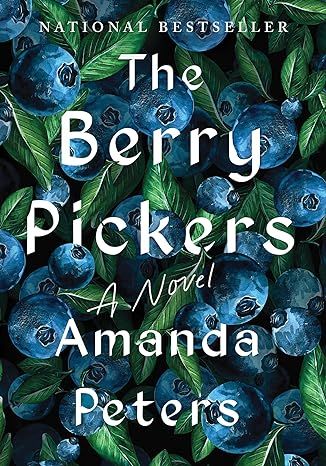
The Berry Pickers: A Novel
4.5
-
14,209
$14.99

Elon Musk
4.7
-
15,272
$16.99

Just for the Summer
4.6
-
19,524
$11.99
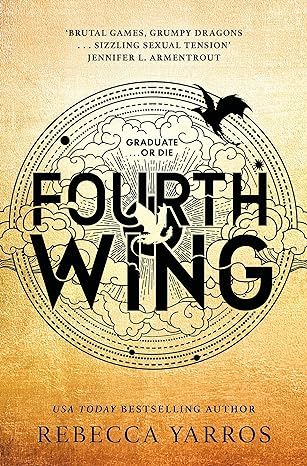
Fourth Wing (International Edition)
4.8
-
206,495
$7.95
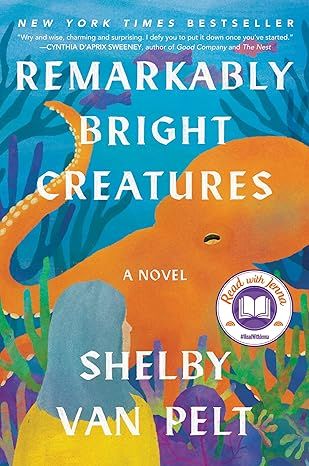
Remarkably Bright Creatures: A Read with Jenna Pick
4.6
-
65,556
$15.80
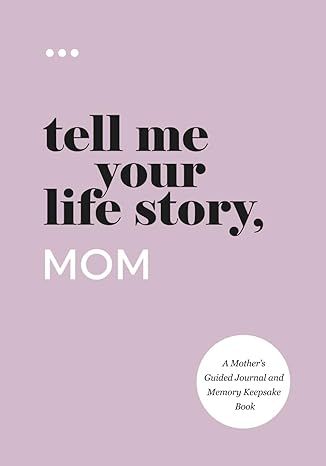
Tell Me Your Life Story, Mom: A Mother’s Guided Journal and Memory Keepsake Book (Tell Me Your Life Story® Series Books)
4.7
-
5,107
$11.24
